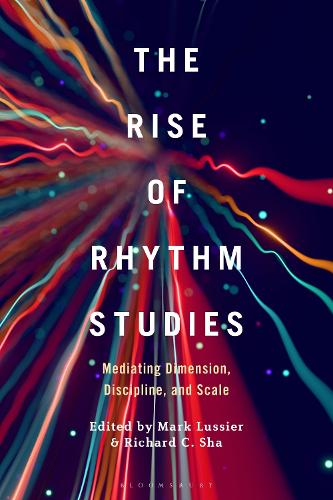
The Rise of Rhythm Studies: Mediating Dimension, Discipline, and Scale
(Hardback)
Publishing Details
The Rise of Rhythm Studies: Mediating Dimension, Discipline, and Scale
By (Author) Professor or Dr. Mark Lussier
Edited by Dr. or Prof. Richard C. Sha
Bloomsbury Publishing USA
Bloomsbury Publishing USA
8th January 2026
United States
Classifications
Professional and Scholarly
Non Fiction
Comparative literature
Phonetics, phonology
Literary theory
Physical Properties
Hardback
272
Width 152mm, Height 229mm
Description
Rhythm is everywhere. Its ability to focus and unify interdisciplinary conversation begs the questions: What is rhythm and can different disciplines agree on its definition
Rhythm studies have emerged as a key background form traversing cultural, natural, and social forms like cognition, communication, and even cosmology. An added boon: this background can seem unifying. Those who explore such entangled phenomena study the throbbing presence of rhythmic, oscillatory, and vibratory potentials: Neuroscientists turn to rhythm for novel explanations of why our cognitive capacities are so limited; physicists use it to cross time and space; scholars in various fields turn to it to rethink materialism and affect theory.
This lively collection considers why rhythm currently functions as a form of mediation between disciplines, across widely different scales and dimensions. The Rise of Rhythm Studies tests what rhythm can do through theoretical examinations and in case studies ranging from European literature to Chinese literature and art. Established scholars, such as Nina Kraus, Anna Gibbs, and Caroline Levine, alongside rising scholars in the field, marshal transdisciplinary perspectives in order to understand rhythm as a boundary condition for living in and working through and with the world.
Author Bio
Mark Lussier is Professor of English and Sustainability and Emeritus College Dean at Arizona State University, USA. His works include Romantic Dynamics: The Poetics of Physicality (1999), Engaged Romanticism: Romanticism as Praxis (2008), and Romantic Dharma: The Emergence of Buddhism into Nineteenth-Century Europe (2011).
Richard C. Sha is Professor of Literature and Affiliate Professor of Philosophy at American University, USA. He is the author of Imagination and Science in Romanticism (2018), which won the Jean-Pierre Barricelli Prize for best book from the International Conference on Romanticism. Other publications include Perverse Romanticism: Aesthetics and Sexuality in Britain, 1750-1850 (2008), Romanticism and the Emotions (2016), and Romanticism and Consciousness, Revisited (2022; with Joel Faflak).
